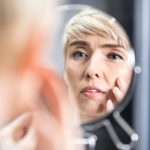 Age discrimination remains rampant throughout the workplace, which is particularly problematic as older people are not only remaining in the workforce in greater numbers, but also participating in a multi-generational workforce where misunderstandings and biases can be rife.
Age discrimination remains rampant throughout the workplace, which is particularly problematic as older people are not only remaining in the workforce in greater numbers, but also participating in a multi-generational workforce where misunderstandings and biases can be rife.
Research from the University of Michigan explores whether looking younger may diminish the agism people face at work. The researchers explain that the anti-aging industry is huge, with people buying products to whiten their teeth, fill out wrinkles, remove bald spots, and make their hair less gray.
Experiences with agism
Do these products help to diminish the incidences of ageism in the workplace, however? Firstly, the study found that over half of respondents aged between 50 and 80 thought they looked younger than their peers, with this figure especially high among higher-income women.
The study shows that around one-third of older Americans, or 35%, have tried to look younger by spending time or money on it. Women, higher-income individuals, and those of Hispanic origin are more likely to do so.
The researchers asked older people about their experiences with aging and ageism, both positive and negative. Positive experiences include being asked for advice and feeling a sense of purpose, while negative ones involve assumptions about difficulties with sight, hearing, memory, or technology.
Feeling younger
People who feel they look younger than their age tend to have more positive experiences and fewer negative ones. Those who actively invest in looking younger also report more positive experiences, especially if they are married or have a partner. However, those who try to look younger also tend to have more negative experiences related to aging, particularly among non-Hispanic Black and White respondents.
On the flip side, those who think they look older than their age are more likely to have negative experiences and fewer positive ones. The study also looked at how self-reported health relates to aging experiences.
Overall, people who have more positive and fewer negative aging experiences are more likely to say they’re in good physical and mental health. Those with higher scores on positive experiences are more likely to report good mental and/or physical health.
However, those with higher scores on negative ageism experiences are more likely to report fair or poor physical and/or mental health. This shows a complex connection between how people view aging, their health, and how society sees them.
“Taken together, these findings suggest a complex and nuanced relationship between how older adults feel about their age-related appearance and the experiences they have, both positive and negative, related to their age,” the researchers explain.
Investing in youth
The researchers highlight a significant gap between the percentage of people who believe they appear younger than their age and those who admit to investing time or money to achieve a younger look. This difference might be influenced by the prevalent societal prejudice against aging and, particularly, the reluctance, especially among men, to acknowledge efforts to alter one’s appearance.
The study implies that caution is necessary for clinicians and public health authorities when reinforcing the notion that signs of aging are undesirable. Instead, they can play a role in helping adults understand how lifestyle choices affecting aspects linked to aging appearance could not only potentially enhance their overall health but also diminish the likelihood of facing age-related discrimination and health challenges later in life.
“We know that healthier eating, more physical activity, better sleep, stress reduction techniques, preventive oral hygiene, use of sunscreen, and reducing or eliminating use of tobacco, alcohol and other substances can all impact appearance later in life, as well as physical and mental health,” the researchers conclude. “And many of these interventions are less costly, or at least more evidence-based, than the many commercial products and services that claim to reduce signs of aging.”